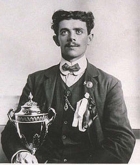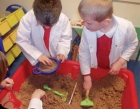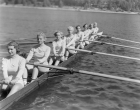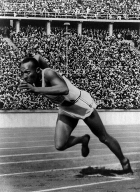Classroom Resources
These resources can take many forms but will be aimed at helping younger children explore historical concepts through their senses and developing their language and communication. For example, artefacts, visual images of various kinds, stories and people themselves all help younger children to explore ideas and work out problems for themselves and with support from informed adults.
Sort by:
Date (Newest first) | Title A-Z
Show:
All |
Articles |
Podcasts |
Multipage Articles
-

'Doing Local History' through maps and drama
ArticleClick to view -

A History of the World: 100 objects that tell a story
ArticleClick to view -

A Local History Toolkit
ArticleClick to view -

A creative Egyptian project
ArticleClick to view -

A view from the KS1 classroom - investigating an artefact
ArticleClick to view -

An Olympic Great? Dorando Pietri
ArticleClick to view -

Archaeology and the Early Years: The Noah's Ark Experience
ArticleClick to view -

Artefacts and art facts: images of Sir Francis Drake
ArticleClick to view -

Artefacts handling at Brunel's SS Great Britain
ArticleClick to view -

Bring on the iPad revolution
ArticleClick to view -

Case Study: Historical information and the local community
ArticleClick to view -

Case Study: Hit the net!
ArticleClick to view -

Celebrate your sporting heritage
ArticleClick to view -

Chronology through ICT
ArticleClick to view -

Chronology: Developing a coherent knowledge
ArticleClick to view -

Constructivist chronology and Horrible Histories
ArticleClick to view -

Doing History with Objects
ArticleClick to view -

English Heritage's Heritage Explorer
ArticleClick to view -

Extending Primary Children's thinking through artefacts
ArticleClick to view -

From Champion to Hero: Engaging Pupils in a study of significant Olympians
ArticleClick to view

